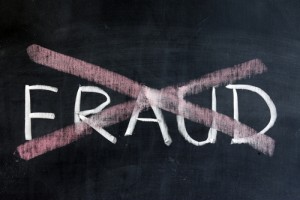Subscribe to our newsletter!
Stay updated with the latest security news, tips, and promotions.
 In a past post we discussed how to keep yourself safe from identity fraud. Our ever-increasing reliance on “all things digital” creates the perfect storm for hackers to steal not only passwords and logins, but our very identities, too. Previously, we highlighted some of the most important tactics you need to be aware of to keep your personal details secure in a world that seems to hemorrhage information. With the right habits and tools, you lessen your chances of becoming part of an ID fraud statistic.
In a past post we discussed how to keep yourself safe from identity fraud. Our ever-increasing reliance on “all things digital” creates the perfect storm for hackers to steal not only passwords and logins, but our very identities, too. Previously, we highlighted some of the most important tactics you need to be aware of to keep your personal details secure in a world that seems to hemorrhage information. With the right habits and tools, you lessen your chances of becoming part of an ID fraud statistic.
But sometimes, you can be doing all the right things, and through no fault of your own, wind up compromised, as was seen in the too-many-to-count hacks of 2015. Last year was truly a watershed year in terms of hacks and it’s estimated that over one half of American adults had their identity compromised in some way. If you were one of those people, there are some things you can do to minimize the impact of the loss of that private information. And when it comes to your identity, time isn’t really on your side. Don’t spend precious moments wondering what to do next, just get going with anything and everything you can to reduce the damage.
Here are six steps you need to take now if your identity was jeopardized:
According to the Federal Trade Commission, your first step should be to call your bank and credit card providers to let them know about the fraud and make sure they freeze your accounts ASAP. This means that no one can use them unless it’s with your approval.
You can also place a fraud alert on your account – this is essentially a special marker on your account that lets creditors know to take extra precautions when authorizing purchases on this account. This is less severe than the above measure as charges can still go through – it just means that the creditor or lender has to do more thorough background checks before letting transactions through. You can put a 90 day alert on your account by contacting one of the three credit reporting agencies, Equifax, TransUnion, or Experian (who was just hacked in a big way so at least they can sympathize). You can contact any of them and they let the others know.
According to Rocket Lawyer.com, an online legal service that provides low cost legal guidance, one of your first steps should be to file a police report or an identity theft report. According to their ID fraud center “This report gives you certain legal rights when you provide it to either the company where the thief misused your information, or the three major credit reporting agencies”.
Then send copies of the report to your local and state police and all the businesses that were affected. Include in the report as many details as possible. Make sure to let the Social Security Administration know as well.
We like changing passwords about as much as we like cleaning mildew off our shower walls – we may hate doing it but it’s just one of those things that’s got to get done. And if your ID has been compromised, it’s more important than ever. It’s time to change your passwords and make sure that your new ones are truly secure. This includes passwords for your bank and credit card, and all the other sites for which you have logins. We covered the topic of how to create hack proof passwords extensively a few months back. Follow those instructions and make sure all your passwords are unique and change them often.
While we are on the topic, now is a good time to consider upping your security game by enabling two factor authentication for all your logins. See our article about setting up 2FA on some of the most commonly logged-on to sites. Having 2FA enabled essentially adds another layer of protection between your accounts and bad guys. It’s not all that hard to set up and it can save you mounds of trouble in the end.
There are lots of ways malware and viruses can infiltrate your computer and expose your information to ill-intentioned people. Keeping your antivirus and antimalware programs updated blocks those nasties from your computer, and in fact, there is a good chance that lack of proper online security measures had something to do with the ID fraud you experienced. From here on in, make sure your antivirus program is updated and is doing its thing. All the time.
This part is key – get into the habit of reviewing your bank and credit card statements online on a regular basis. This way you’ll know if anyone does try to put anything though (and even if you put an alert on your card, things can still get past, and anyway, it’s only for 90 days). This is a habit you want to get up and running – forever.
After an ID fraud incident, the best policy is to stay aware and vigilant. And the real truth is that in today’s digitally-wound world, constant vigilance is probably the best policy for everyone, compromised or not (yet). So in that sense, you can consider yourself one step ahead of the game.
If you were involved in an ID fraud incident what did you do? How does it affect your everyday life? Tell us in the comments.